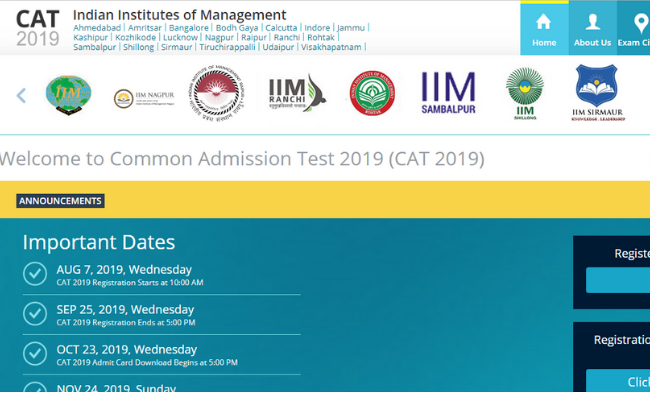
The results of Common Admission Test (CAT) 2019 were announced on 4th January by IIM Kozhikode. Naturally, candidates are now busy preparing for their WAT/GD and PI rounds.
After all, this second stage influences one’s final selection But what requires more hard work? The national-level entrance exam for which more than 2 lakhs people register? Or, the Written Ability Test and Personal Interview?
While the CAT index score itself consists of a weightage component of more than 30%, the WAT/GD and PI accounts for 60+ weightage. Let’s try to answer the elephant in room question: What is harder to clear: CAT or WAT-GD-PI?
The CAT exam
The CAT exam is the first step you have to clear to pursue your MBA dream. It is a process to test one’s basic aptitude knowledge. The top MBA college uses the CAT percentile score to shortlist applicants for the second stage of the selection process. The CAT is regarded as one of the most competitive entrance exams in India for multiple reasons.
- First and foremost, more than 2 lakh candidates apply for this exam, and the number just keeps increasing every year! As CAT is the gateway to secure admission in India’s finest business school, almost 99.99% MBA aspirants register for this exam. The competition is very stiff, and only those who put extra effort score a 99+ percentile.
- Secondly, it is not an easy exam to clear. The overall difficulty level of the paper remains from moderate to difficult every year. The sectional cut-offs also do not make things easier. This makes the exam very challenging.
- Finally, as appearing in the CAT exam is mandatory, and the first stage of the admission process, applicants devote most of their time in bettering their aptitude skills. It takes months of preparation and daily practice to clear the CAT.
The WAT/GD and PI Rounds
- The WAT/GD and PI rounds have a combined weightage component of more than 60% in almost all management institutions. All candidates securing lower than expected CAT percentile try to compensate in this stage of selection. You have to devote as much time as your CAT preparation.
- GD- In this round, you are still competing with the other candidates in some way. However, it is your skills and arguments that will help you to ace the GD.
- The WAT round can be called the subjective version of the GD. You have to present your arguments well but in a written format and in a limited time.
- PI- You are ahead of the competitive stage now, and it is your attitude and composure in PI that will fetch you marks.
- The WAT/GD and PI rounds test much more than your basic knowledge.
- You have to be thorough with Current Affairs, General Knowledge. For PI, you have to be aware of much more than that. You can be asked about anything from your hobbies to your life choices.
- Unless you are a know-it-all and you radiate confidence all the time, these rounds require more preparation.
- The marks you receive in this stage impacts your selection in the final list heavily.
What is harder? CAT or WAT-GD-PI?
After analysing both stages, one can easily say that both CAT and WAT/GD-PI need hard work and determination from the candidate’s side.
CAT and WAT-GD-PI are unique in their way, and there are different parameters to judge their difficulty level. Both stages call for different types of preparation. CAT and GD/WAT-PI evaluate distinct skills of an applicant.
One has to excel in all the domains of the examination to study in any of the top MBA colleges in India. While many toppers ace both levels of the admission process, it is not the same for all candidates.
Sometimes, an applicant securing 90+ percentile fails to convert the call from a top business school. Either way, the responsibility of the final selection rests upon the shoulders of the applicant.
While CAT requires you to compete with lakhs of other MBA aspirants, the WAT/GD-PI calls for the best presentation of your words and yourself. Thus, it can be safely concluded that both CAT and GD-WAT-PI are harder in their manner.
Stay connected with fellow students on PaGaLGuY for CAT Exam 2019 Preparation
